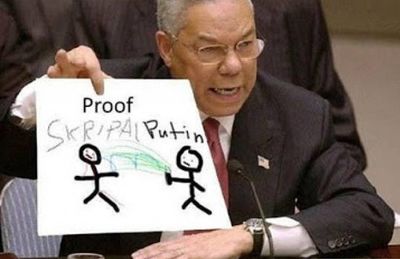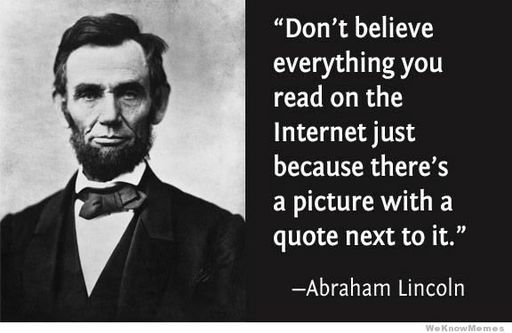Wikispooks:Style Guide

The golden rule of writing is to keep the reader in mind. On the internet, this is easier said than done, since the reader could be anybody. As this is a wiki, feel free to experiment and try a variety of ways to get your points across, although doing so in accordance with the below guidelines should help keep your contributions focused and in alignment with the general pre-existing direction of Wikispooks.
Contents
- 1 Collaborate
- 2 Avoid repetition
- 3 Encyclopedic Style
- 4 Wikispooks Specifics
- 5 References
Collaborate
Remember that this is a wiki, so be courteous and be aware that other editors will edit your contributions. Be ready to return the favour by developing articles which others are working on as the mood takes you, dropping in a link to another article or giving some extra piece of information. All of us are smarter than any of us, and it's always encouraging to see ones work improved upon by fellow editors. Don't get hung up on matters technical - if you need help with syntax, just ask and someone will pitch in to advise or improve your work. Critical thinking and assembling of information is more important than presentation.
Avoid repetition
Repeating material from elsewhere on the web is a fast way to add content, but Wikispooks has a strong preference for quality over quantity. Material which has been copied wholesale must be sourced. Large quotations from elsewhere is generally unhelpful. Repeating chunks of material from one Wikispooks page elsewhere on the site is both off-putting but also confusing. Instead, think which page the material most logically belongs on and link there from other pages, perhaps using Template:FA, generally but not exclusively at the top of a subsection. Wikipedia used to be a good source, but it has several serious problems, so please be very selective in importing from Wikipedia. Linking to material on third party sites, for example with a pithy quotation to illustrate its flavour, makes for a more readable article than paraphrasing it.
Familiarise yourself with the most common template parameters[1] and use them whenever possible, since this not only displays data in a helpfully predictable place, but also creates in-links to the page from other pages. Try to avoid repeating this information elsewhere on the page.[2]
Encyclopedic Style
If you're a regular Wikipedia user, you're probably already familiar with encyclopedic style, which applies to all the main: pages (though not the Talk: pages). No use is made of the first or second person ("I", "We" or "You"), content is clearly introduced and structured with well chosen headings and subheadings to help readers quickly locate material of interest, text is written in a flowing style for the sake of those readers who wish to read a whole page at a time. Important information is cited to help readers locate sources for more in depth study. Editors should take care to follow conventional grammar and spelling rules.[3]
Names
- Full article: Wikispooks:Standardisation
- Full article: Wikispooks:Standardisation
English has considerable flexibility which it is expeditious to curtail, particularly as regards names of pages, if links are to work correctly. Pagenames should be in the singular (False flag, not False flags). Unless needed to avoid ambiguity, names of people should be devoid of a title (so Muammar Gaddafi, not Colonel Gaddafi). All names of publications, such as books, films or newspapers should be in italics, especially if they are otherwise ambiguous.[4] Some pages, such as the "war on terror" have double quotes around the title (set by the |so_called parameter, which is used to indicate a deceitful turn of phrase) - in this case, the phrase should not be used without the " characters (except inside direct quotations).
References
Citing your sources is an essential way to help readers estimate the creditworthiness or otherwise of an article, so is highly recommended. Give priority to primary sources whose main function is the collection and presentation of data. If you are creating an article about a UK company, for example, you should include a reference to its page on Companies House. Other sources exist (such as opencorporates) for non-UK companies. Determining the reliability of a source is a highly complex matter - seek multiple sources if you are in doubt.
If you can't find a source, using Template:cn to record that fact is a good way to attract other editors to try to seek one. If an article has references, it will need a section (generally the very last) entitled References - this should have two equals signs (==References==).
Sections and sub-sections
Sections and sub-sections are used to break up the article into sections and to help readers navigate to the content they seek. Where more than one such section exists, the software automatically builds a table of contents at the top of the page. Recommended section titles should be brief and clear. There are no hard and fast rules for how to break a subject down into sections, although too many top level sections is confusing - try to aim for not more than seven, including references and any other automatically generated sections. Chronological order is often but not always helpful.
Standard sections
Reading lots of existing pages is probably the best way to get a feel for how articles are structured. A common first section is "Official narrative" to clarify what the group or person has to say about themself, or what the commercially-controlled media say about an event. Other standard sections are, in approximate order:
- "Background", generally for people, to explain family connections, childhood and first education
- "Career", for people's regular, paid activities
- "Activities", for people's irregular or unpaid activities
- "Connections", often a few sentences about relationships between people and/or groups
- "Cover up", especially popular for events
- "Exposure", especially popular for events or fraudsters
- "Suicide" or "Assassination" for people so affected. In case of uncertainty, use the more guarded "Premature death"
- "Publications", generally used for people
Deprecated sections
One or two articles have deprecated sections, such as those were imported from other wikis, which are unnecessary here.
- "External links" - The most clear cut case is if this contains links that have their own parameter (e.g. Wikipedia, IMDB, C-Span etc.) These belong in the metadata section of the template, since this is where users will look for them first by scanning for an icon. For other links, some comment to explain their relevance to the topic at hand is good
- "See also" - This is used to point readers to similar sorts of pages. A more easily maintainable approach is to use |constitutes. e.g. Adding to each deep state group builds a list at Deep_state#Examples. If another page is particularly relevant to the page in hand, this should be explained in the text.
- "Biography" - Since the whole page is a biography, this is unhelpful. Sections are for breaking the biography into pieces
Duplicate section names
Other names that should be avoided are any of the automated sections produced by Template:SMWDocs, since this could potentially lead to duplicate sections with identical names. The prime example is "Examples", for which the standard replacement is "Selected Examples".[5])
Links
Hyperlinks are easy to insert (just use pairs of square brackets) and their wide use is encouraged. Most important to hyperlink are words or phrases which the reader is likely to want to know more about. This will typically include names of people, groups, concepts etc.
Avoid wikilinks in section headings - instead either use the first such mention in the text below, or else use Template:FA just below the section heading. Do try to avoid links that are forwarded back to the same page, since they just waste the readers' time and so discourage them from clicking further. Remember that you shouldn't link in every occurrence of a word or phrase. Linking in the first is most important (since readers will generally read the page from top to bottom and will probably only want to click the first time they come to a particular link). Hyperlinking important words more than once is OK, especially for long pages, but use common sense - multiple links in the same paragraph, for example, would be redundant, and hence distracting since the user only wants to be presented with relevant links.
External links in article text are not recommended. If you wish to make an inline links to an external page, this is a sign that the subject is germane to Wikispooks, so just make a new link. External links are of course highly recommended for citing sources, but these should be in a <ref> tag.
No circular links
Do not create 'circular' links (i.e. links that transition back to the page they came from). This leads to a disappointing user experience and wastes serer resources by re-loading the same page. Links must go to
Ledes
Each page should have an opening paragraph (a lede) which gives an overview of the subject. This should in the first sentence repeat the title of the page (and other alternate names of similar importance) in bold.[6] Some people or groups have pseudonyms or other alternate names. In this case, these should also be listed in bold (often in the first sentence) and redirects from them should be created that point to this page. The lede should preferably include the main deep political points in the page.
Clarity
Each page should be a clear, stand alone, item. You can assume an interest in but not necessarily prior knowledge of a topic. Also do not assume that the reader has visited (or will visit) any particular references. Be careful to explain technical terms before you use them, linking to a full article elsewhere if available.
Images
Every object template has an image parameter. These should be unique and highly representative,[7] of the page subject, and unadorned by additional text captions (although TV screenshots bearing introductory text are permissible). Groups and websites also have a logo parameter. Where possible, a current, official logo is preferred. These are used as icons to represent the page, e.g. on the main page. Where no image is available on the internet, an anonymous image (e.g. No image available (photo).jpg: is available to record this.
Photoshopped images

Do not post an image here if you have doubts about its authenticity unless you clearly explain your doubts. Known spoof or fake images may be used only if you clearly identify them as inauthentic. For examples of how to do this, see the images shown on the left and below.
Relevance
Being a good editor means knowing what to leave out as well as what to put into an article; all material you include should have a clear bearing upon the topic. For example, a letter from person P1 to person P2 that was written in year Y, lead to event E, was about topic T and exemplified phenomenon Q, might be worth a mention on any or all of pages P1, P2, Y, E, T and Q, but this is about the limit - even a reference to it elsewhere would probably be irrelevant and therefore not wanted.
Emphasis
Sometimes you may wish to emphasise a particular word or phrase. Italics are a good way to convey emphasis. Bold is usually best avoided in ordinary text, as it attracts so much attention, though for this reason it is used for the pagename itself and alternative names or abbreviations) in the lede). BLOCK CAPITALS, or <big> - AKIN TO SHOUTING - ARE NOT HELPFUL. Many of the topics on Wikispooks are matters of life and death, about which very strong feelings are to be expected. Nevertheless, please seek out well chosen words to express yourself, rather than resorting to formatting, which has a rapidly diminishing rate of returns.
Focus
The ideal page (and page section) remains focused on its title; while content inevitably touches on a variety of topics, it should be carefully created for a readership primarily interested in the title of the page. If a section gets overly long, consider whether it can naturally be divided up into sub-sections. If a page gets over long, consider moving a larger section or two to its own page, replacing it with a few lines to summarize the material moved, and use template:FA to point to the new page.
Article length
A set of shorter hyperlinked articles is generally much more useful than one very long article. Try to use subpages to split up any page[8] that exceeds 50k bytes[9]. Wikipedia has a good page on article size. In particular, extended quotes from documents are not suitable for Wikispooks articles, which are intended to be a synthesis of multiple opinions. If a document is really that good, add it on a separate page. Since there is no restriction on page size in the document: namespace, just post the original in its entirety as a standalone document. You can use |subjects to specify which other pages it appears at in the "Related document(s)" section.
Humour
Humour, particularly in images, does have an established place on this website, especially on lighter subjects. However, since this website has international reach and addresses very serious issues, lean towards dry (understated) humour. Avoid sarcasm entirely and beware of ambiguity is general. In particular, avoid puns in page titles and section headings since this is particularly confusing. Avoid humour entirely when dealing with the deadly serious. As usual, try to maintain the existing look and feel of the site.
Language
Language should be short, simple and explicit, not flowery. Generally, avoid the passive voice. If you do not know the subject of an action, you can use the Template:By whom to highlight the fact that important information is missing.
Deceptive language
Avoid deceptive language as much as possible! If the actual number is known to be 103, then the shortest and most accurate way to report that is just to write "103". Writing "over 100" is akin to exaggeration, popular with the commercially-controlled media but unwelcome here, where we prefer strict accuracy — and we respect our readers' intelligence[10]! Where the phrase "over 100" could be justifiably used would be either where the exact number was unknown, or where it was subject to gradual change, but it was known to reliably exceed 100.
Loaded language, such as plastic words or enemy images, should only be used inside quote marks and should be avoided where possible. For example, do not refer to the Piazza Fontana bombing as an act of "terrorism", far less as an act of terrorism, simply call it a bombing. "Colonel Gaddafi" is more simply named Muammar Gaddafi. One person's [unjust] "regime" is another's [just] "government" and vice versa, so leave language trickery to the propagandists[11] and instead use the least prejudicial wording you can. These disciplines may initially seem irksome, but the habit once formed can help with clear exposition and thinking.
Use intelligence agency - they are not a service! Also avoid service for positions - they are normally handsomely paid to do a job. An "expert" can be put in quotation marks if you doubt their independence.
Quotations
- Full article: Quotation
- Full article: Quotation
Short quotes (from one word up to a lines or two) can be a great way to add tone and give voice to an article. In this case, the simplest way is use of normal ASCII double quotes ("..."), but it is recommended that you use a Template:SMWQ, a semantic quotation template which will allow the quotation to appear on multiple relevant pages at once.
Source URLs and details
If you plan to include a quotation, seek out supporting details such as date and context. Quotes do get changed[12] so do take the time to try to locate a canonical, original source.[13] If the source document is already available on this site in the Document: namespace, use a link to that in preference to an external URL from which it was sourced.
Quote marks (",“,”)
Where the quote itself includes such marks, you may wish to use the alternative slanting quotes (“...”) and/or single quotes ('...') for clarity. Extensive quotes of more than a couple of lines are sometimes useful, in which case use one of the two available Quotation Templates. If you see unquoted material which seems like a quote (for example, if it uses the first person, or context dependent words such as 'today', 'here' etc.) you can flag this problem with Template:Uncertain origin. In page titles, use the normal ASCII quote marks (' or ") rather than more exotic variants.
Whitespace
Mediawiki markup allows some flexibility as regards use of whitespace. Since it is not displayed to the reader, this is not a high priority, but to facilitate use of Special:ReplaceText, editors are recommended to follow the guidance at Project:Standardisation#Whitespace.
Redirects
These are a useful way to deal with different names for the same page, so, for example, "Limited Hangout" redirects to "Limited hangout". They also facilitate gradual expansion of the encyclopaedia, so, for example, "Modified limited hangout" has no separate page (yet) so it currently redirects to "Limited hangout". It is good style to redirect to the specific page section ("Limited hangout#Modified limited hangout").
There is currently no need to use the Wikipedia style "DEI redirects here" messages at the top of pages (names are much less crowded, because we have a couple of orders of magnitude less pages). Instead just make the redirect. Where a page has one or more |abbreviations, it is good style to link these all in to that page (of they will appear as broken links).
Wikispooks Specifics
While it has plenty of similarities with Wikipedia, Wikispooks also has differences. The most significant is its scepticism towards is the official narratives promoted by the institutions of the powers that be such as the commercially-controlled media.
Non-violent communication
- Full articles: Nonviolent Communication, Enemy images
- Full articles: Nonviolent Communication, Enemy images
Wikispooks should be as non-violent as possible in its communication. Wikispooks editors' loyalty to the truth as they see it means that enemy images or emotive language are unwanted here. Wikispooks articles should be a simple and unadorned review of the historical record. Doubly unhelpful are words such as "terrorism" which are both emotionally charged and very loosely defined,[14] so these words are only suitable for use inside of quotation marks. Be wary of such words in your own contributions to Wikispooks. Add quote marks to such words for indirect quotations, but not for direct quotes (since the whole quote must be in quotation marks anyway).
Official narrative
Many deep political topics have a single official narrative which is widely promulgated through commercially-controlled media such as newspapers, TV and hence Wikipedia. This typically includes a set of correct and widely agreed facts and is a departure point for many who are trying to dig deeper, it is often a good starting point for a page. So, while extensive narration of the official narrative is unwanted, it may be good style to have an "Official Narrative" subsection as the first section of a page which summarises the story promoted by the establishment. This should not be lengthy, unless no handy link to an official source (most commonly Wikipedia) is available. This often has a subsection "Problems" which outline some of the narrative's shortcomings that are discussed in more detail in subsequent sections.
Original documents
- Full article: Wikispooks:Document Editing Rules
- Full article: Wikispooks:Document Editing Rules
Sometimes, you will find a document which would be good to include in its entirety on the site. Copying to Wikispooks is preferred to linking if there is a chance that the link could go dead or be changed (e.g. news stories from commercially-controlled media sources which are sanitized because they accidentally let something slip) or maybe because the original is not yet on WWW (e.g. it is a scan of hardcopy). In this case, post it to a page in the "document:" namespace so it is preserved in its original form.
| Name | description |
|---|---|
| (Main) | This is for ordinary pages, it is not shown |
| Talk | Every main page has an accompanying 'talk' page, for discussions about the page content. |
| Document | For text documents. The content should not be edited. |
| File | For posting other files, such as images or PDFs. |
| Wikispooks | For pages about this project (such as this one). Note that the alias "Project" should be used in preference for greater portability. |
| Help | For help about the software used. |
| User | Every user has their own page which they can use, for example, to introduce themselves |
Namespaces
- Full article: Help:Namespaces
- Full article: Help:Namespaces
The Mediawiki software which runs Wikispooks organises the material into separate sections, called 'namespaces'. This page, Wikispooks:Style guide for example, is in the "Wikispooks:" namespace, used for pages which are about this project. There are a couple of dozen namespaces, but most are not so important. The most important ones are:
Templates
- Full article: Wikispooks:Templates
- Full article: Wikispooks:Templates
The template: namespace is for short programs which make some of the page for you. To invoke templates, begin "{{" and end "}}". For example, the "Full article: Wikispooks:Templates" link just above is created by Template:FA, and it the result of the template call: "{{FA|Wikispooks:Templates}}". To see all the available templates, see the templates category.
Quotation templates
There are two ways of marking up blocks of quotations:
The simplest quotation box is template:QB which makes a "Quote Block" (like this). For more important quotes it is better practice to use template:SMWQ ("Semantic Media Wiki Quote") since this this does not only change the appearance but adds semantic data, so that the quote can appear on related pages in the same way that Documents do.
Time references
This site has 31,955 pages, and relatively few staff to keep content current. Outdated pages are off putting and unnecessary; time references should be absolute rather than relative.[15] Avoid use language such as "currently", "soon", "2 months ago", "last year" etc. which quickly go out of date. For example, instead of stating that someone is the "current President of Mexico", stating that someone "was made President of Mexico on <whenever>". The former statement inevitably becomes inaccurate, but the latter does not.
Where to begin?
- Full article: Wikispooks:To Do
- Full article: Wikispooks:To Do
The 'To Do' section details a number of ways that it is easy to get started. If you begin a new page, you should probably use Template:Stub until it reaches about five lines of text. It is helpful to create a page which offers even one item of important information (or reference) unavailable on Wikipedia.
Legacy content
Although some pages in Wikispooks have a "see also" or "External links" section, these are usually the older, poorly maintained sections. Since the upgrade to SMW technology, it is much preferred to avoid this section and instead use appropriate SMW-based methods (e.g. Template:SMWDocs) to link in relevant material. Where a subject is linked in from the text, it is generally better not to add a separate listing under "See also" since this unnecessarily lengthens pages. Where a 3rd party text is important, it is usually better style to cite it as a reference so it appears in the references section. "See also" sections may be helpful in exceptional cases, but other methods of linking in documents are generally to be preferred.
Some pages have hardcoded tables, which is bad style, since it increases the maintenance and is hard to update. Do not start such new lists, but extending existing lists/tables is still acceptable.
References
- ↑ For example, Template:Person
- ↑ Some information however may be helpful, e.g. to create a clear narrative.
- ↑ Since this wiki was started by users of British English, that is still preferred over other spelling options, but adhering to it is a recommendation only.
- ↑ e.g. Operation Gladio ≠ Operation Gladio
- ↑ Highlighting the fact that the list is human rather than machine generated, this disambiguation approach could be used widely, e.g. "Selected Witnesses" for "Witnesses" etc.
- ↑ If the pagename is an abbreviation, or a re-rendering to accommodate syntax limitations (such as no ','s in PageNames) put that first, with the full name in parentheses just after. The stating the full name at the top — complete with titles — is helps search engines to ranked the page
- ↑ For people, the a photo portrait of the person concerned without anyone else in frame and without distracting text. For events, photos are usually best, for abstract concepts created images may epitomise their subject better
- ↑ Note that this does notapply to documents.
- ↑ The page size is listed at the bottom of every page as "Has revisionSize"
- ↑ A safe assumption is that 100% of our readers know that 103 is over 100.
- ↑ This word itself carries negative connotations, so is not ideal. We welcome an alternative suggestion for a word describing people whose stock in trade is using language to try to control the opinions or ideas of others.
- ↑ https://saidit.net/s/WayOfTheBern/comments/hfn/the_whole_aim_of_politics_is_to_keep_the_populace/
- ↑ See Property:Has_sourceURL for a list of sources of existing quotes
- ↑ http://www.unwelcomeguests.net/747
- ↑ Exceptions for particularly important content are fair enough, as long as you keep them up to date :-) Realistically, not many pages will fit this description, only the most important pages to you'
| ||||||
|








